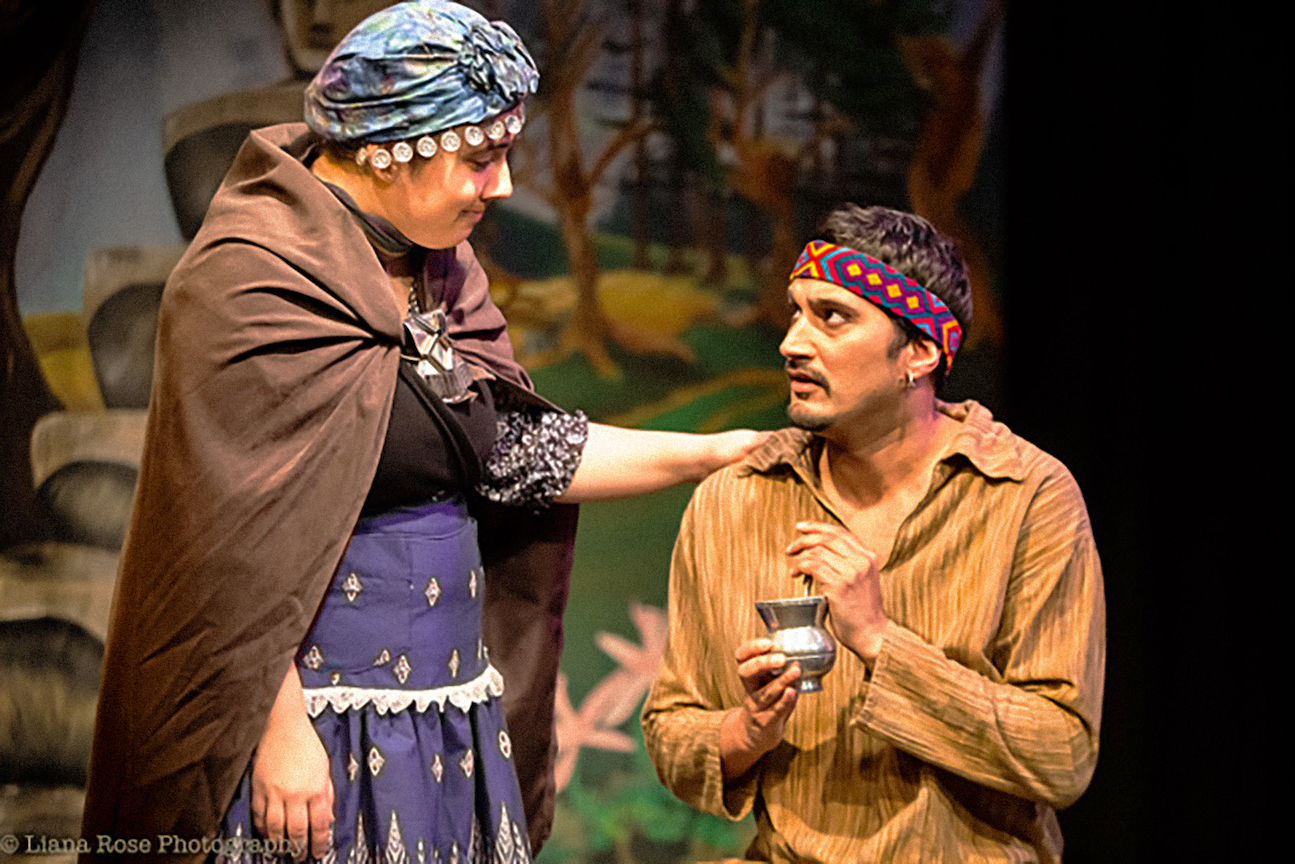A system built on stolen ground, laws that exploit indigenous peoples and jail their activists, and a people left with few options, little land and no representation. The setting could be anywhere in the Western Hemisphere, but in this play it is Chile.
The Milagro Theater on SE Stark staged Huínca—their first production of 2020 and the third production of their 36th annual season—on Jan. 9–18. The play features four actors, each portraying a handful of characters.
Huínca takes place in a modern day Chile and follows a group of Mapuche, the largest indigenous group in Chile and 10% of the national population. Huínca is a derogatory Mapuche word for an outsider. The play opens with a female machi, a traditional religious leader and healer, making a prayer to the four gods of the Mapuche people. “We are imprisoned in the violence within this country,” cried the character, played by Emily Hogan, in the opening monologue. Switching fluidly between lines in Spanish and English, the character begs the gods for an end to the violence.
The next scene opens in with a young boy running in and announcing that his uncle has been shot in the back by an unnamed paramilitary force.
The rest of the play revolves around the aftermath of the death of Camillo Catrillanca, played by Ajai Terrazas Tripathi. His nephew Ailen (Cati Rangel)—the only witness to the murder—flees into the woods to avoid being killed in a cover-up. The dead farmer’s brother Manuel, also played by Tripathi, delivers a passionate funeral oration declaring his people’s intention to continue the fight.
The conflict comes to a head when the logging company in dispute with the Mapuche—heavily implied to be responsible for Catrillanca’s death—sends a high-powered lawyer to settle the dispute. The logging company has been planting non-native trees on historically Mapuche land, drying the soil and threatening their way of life. The resulting action lands Manuel in jail on accusations of arson and manslaughter. A young lawyer, child of Chilean exiles to Canada, takes up his defense. The playwright herself is a child of Chilean exiles to Canada and “based the character heavily upon her own experience,” according to Tripathi.
The Milagro, which describes itself as “the premier Latino arts and culture center of the Pacific Northwest,” commissions and creates multiple original bilingual works every year. Huínca was commissioned by the Milagro using a global grant and was written by Marilo Nuñez, a Canadian-Chilean playwright. In preparation for writing the script, she traveled to Chile and met extensively with Mapuche leaders and families.
Following its run at Milagro, Huínca will go on tour, starting with local high schools and then working south through community colleges and Humboldt State University in Northern California. Touring director Tripathi also said that an international leg of the tour is possible, due to playwright Nuñez being Canadian.
Huínca asks a lot of questions about the fate of the Mapuche people and provides few concrete answers. The action is unresolved at the play’s close and Manuel’s fate is bleak; the violence has not ended. But what’s weaved throughout the work is not just a simple message of hope, but a reaffirmation of the right to exist and experience the pain and beauty of life. The action may center on a damning sequence of events, but the Mapuche spirit endures through the close of the play.
Milagro theater will stage their next production En El Tiempo De Las Mariposas, a fully Spanish with English supertitles, on Feb. 6-29. It is about a group of four sisters that become symbols of hope and resistance against the Dominincan dictator Rafael Trujillo.
